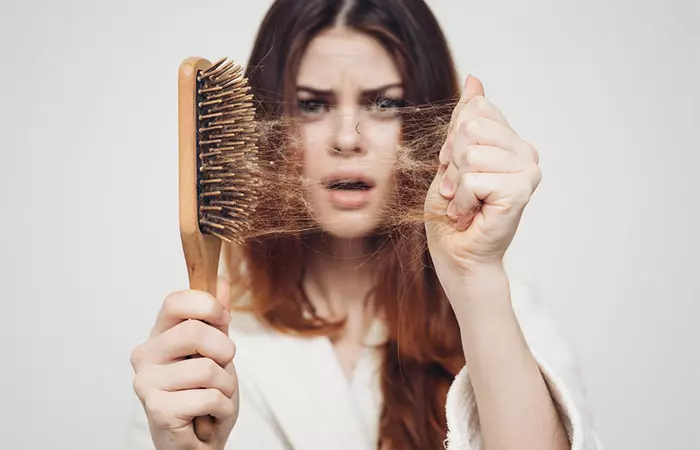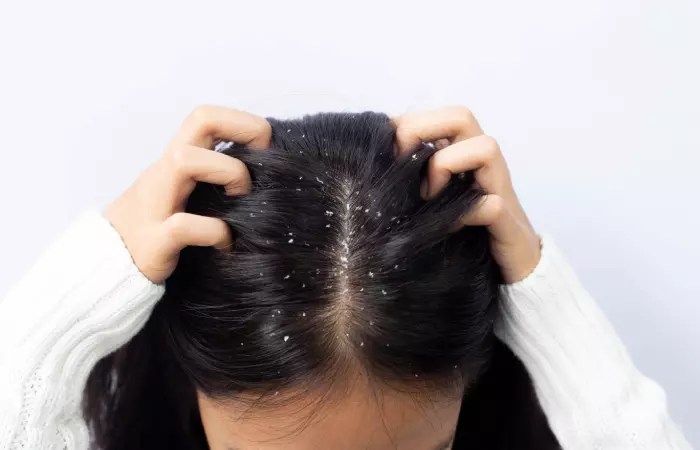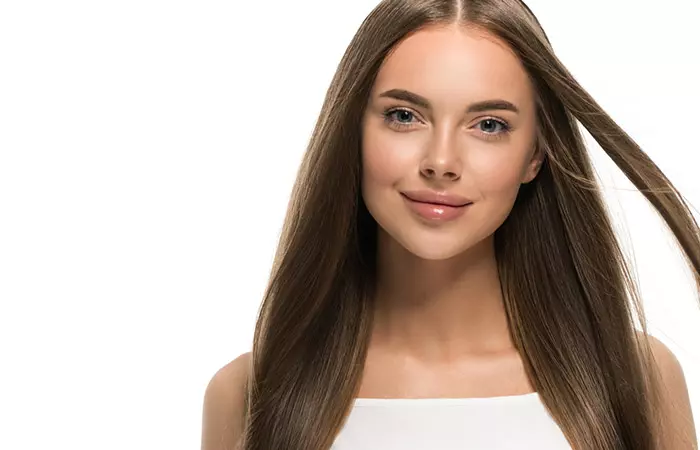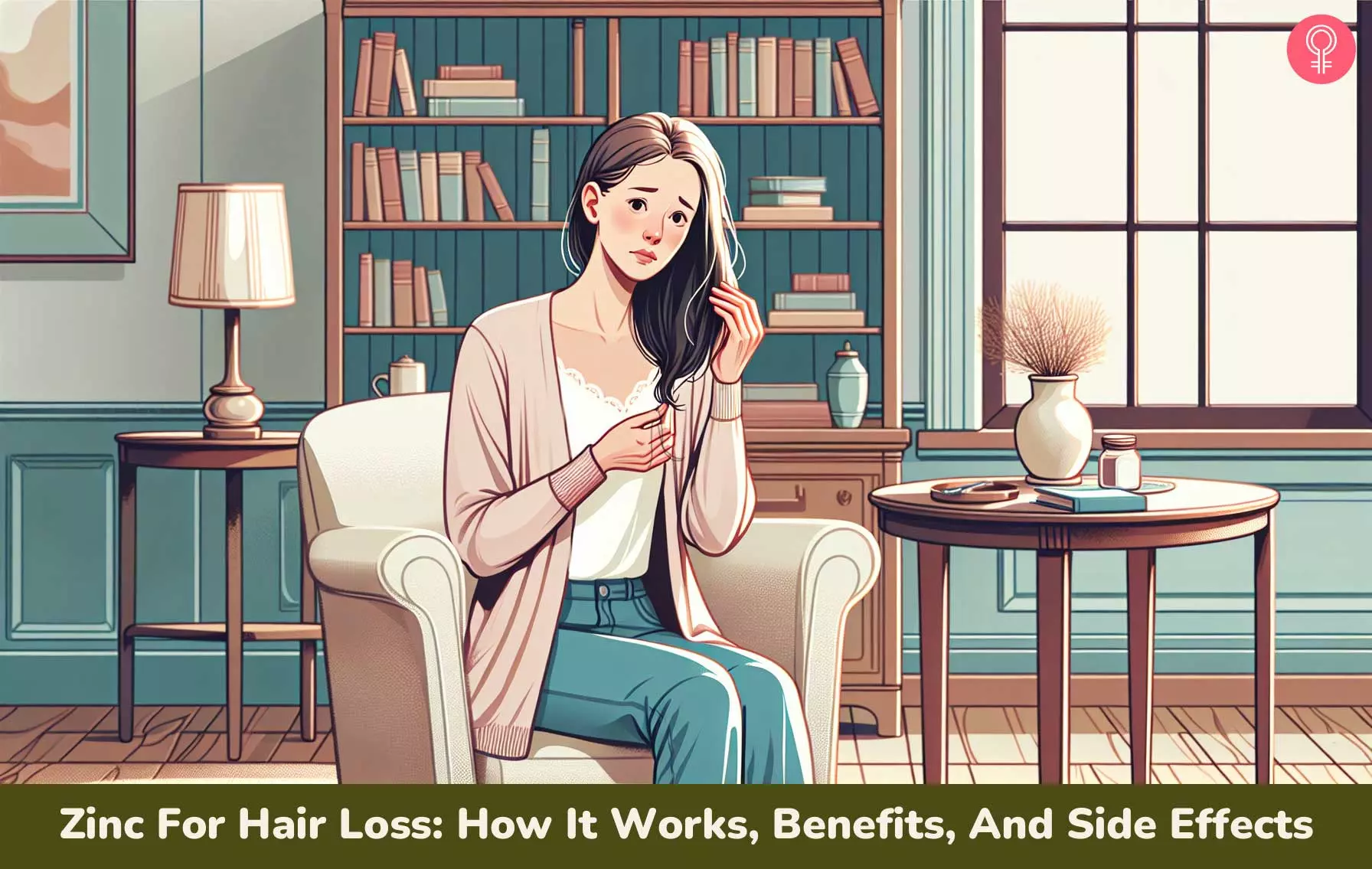Zinc Deficiency And Hair Loss
Research shows that zinc deficiency may cause hair loss (1). Such hair loss can most often be treated with zinc supplementation. In another study, participants with male pattern hair loss, female pattern hair loss, and telogen effluviumi A temporary condition where hair begins to fall out two to three months following a stressful event or bodily change, such as childbirth or surgery. were deficient in zinc (2). Individuals with alopecia areata (an autoimmune disease that leads to patchy hair loss in a roundish configuration) were also found to have low zinc levels (3). What Are Its Benefits? It supports hair growth, strengthens hair follicles, and increases hair thickness. Who Can Use It? Zinc supplements can be consumed by all in moderation unless they are allergic to zinc. How Often? It can be taken every day; however, the dosage depends on the recommendation of your healthcare provider. Caution Excess consumption of zinc is unsafe and may cause vomiting, stomach pain, indigestion, diarrhea, and headache. It may also interact with certain medications.
Along similar lines, a study found that the risk of encountering alopecia areata in a lifetime is around 2% in the general population. In addition, the study also found that alopecia areata is genetic, and those with a family history are more likely to experience it, with a probability of between 0% and 8.6%. Moreover, the study suggested that alopecia areata can increase the risk of getting other autoimmune diseases by 16%. While zinc seems to have an important role in combating hair loss, more research is warranted. Other studies suggest no significant relationship between zinc deficiency and hair loss (1), (4), (5). If you are unsure whether or not you have zinc deficiency, then continue reading as we explore the various symptoms that will help you understand the condition better and take action accordingly.
Symptoms Of Zinc Deficiency
Hair Loss: This is the most common symptom of zinc deficiency. If you are experiencing hair thinning and frequent shedding, and notice bald patches on your scalp, it may be a result of zinc deficiency. The common hair loss symptoms have also been noticed in alopecia areata patients who have zinc deficiency (6). Brittle Hair: Zinc deficiency may also cause dry and brittle hair that is more prone to breakage (7). Scalp Issues: Insufficient serum zinc levels in the body may lead to dandruff (seborrheic dermatitis) and an itchy scalp (8). Premature Graying: Zinc helps maintain hair pigmentation, thus its deficiency can contribute to premature graying of the hair (9).
If you are wondering how zinc can improve your hair, here are some of its benefits.
Benefits Of Zinc For Hair
There are numerous other benefits of zinc which makes it a truly beneficial and important mineral for hair and overall health. A deficiency of this mineral can weaken the hair follicles, causing hair fall. One of the best ways to avoid a zinc deficiency is to consume more foods rich in zinc. Here are some food options you can consider adding to your everyday diet.
Foods Rich In Zinc
A diet low in zinc can cause hair loss and make hair brittle (7). You can counter this by consuming fish and meat, which are rich in zinc and add to hair nutrition (1). Oysters, red meat, and poultry are the best sources of zinc (13). Vegetables and grains are comparatively lower in zinc. Other zinc-rich foods include crabs, lobster, dairy products, beans, nuts, and fortified breakfast cereals The list doesn’t end here. There are numerous other foods high in zinc, which you can check out and include in your diet. While your daily intake of zinc depends on your dietary choices. However, if you are taking zinc supplements for hair, it’s better to keep it within permissible limits. Scroll down to get more information related to dosage.
Zinc Dosage For Hair
Following are the adequate zinc dosage values recommended by the Food and Nutrition Board (13): Zinc is hailed as one of the most important nutrients for hair growth. But did you know it may have some side effects too? Scroll down to learn more about them.
Side Effects
Excess intake of zinc can lead to zinc toxicity. It can cause nausea, vomiting, diarrhea, headaches, and abdominal cramps (13).
Illustration: Zinc For Hair Loss: How It Works Benefits And Side Effects
Learn from a dermatologist how zinc can improve your skin and hair health! Get the facts on how to incorporate it into your routine from the video below. What happens if you take zinc every day? You can have zinc daily so long as it is within the recommended dosage. Excess intake may lead to vomiting, stomach issues, and other health problems. When should I take zinc in the morning or night? Zinc can be taken at any time of the day. However, you should not take it on an empty stomach as it may upset the stomach. Can zinc cause blood clots? Zinc deficiency may lead to blood clots and other irregularities. Is it OK to take vitamin C and zinc together? Yes. It is alright to consume vitamin C with zinc, provided they are within their recommended dosage.













